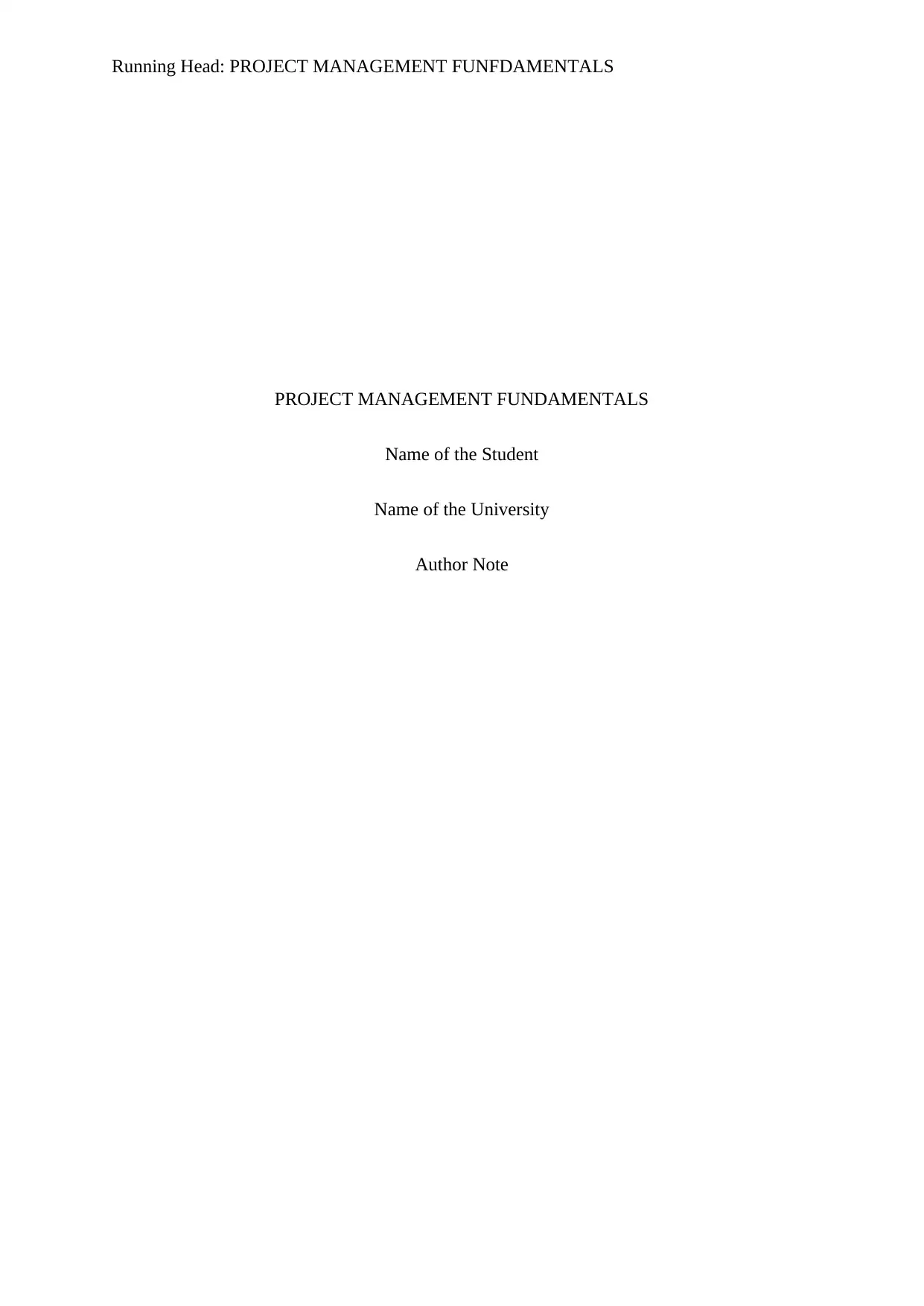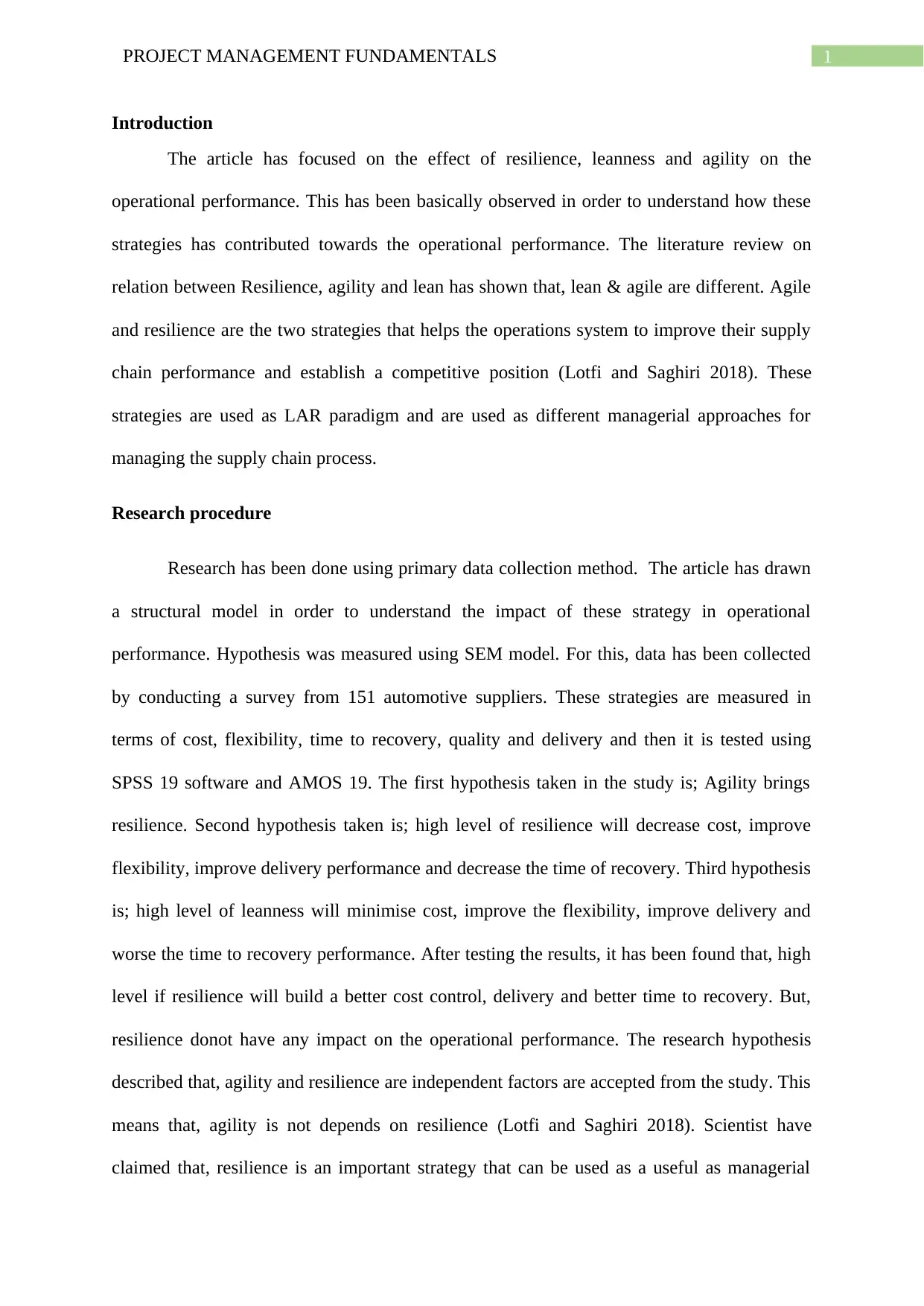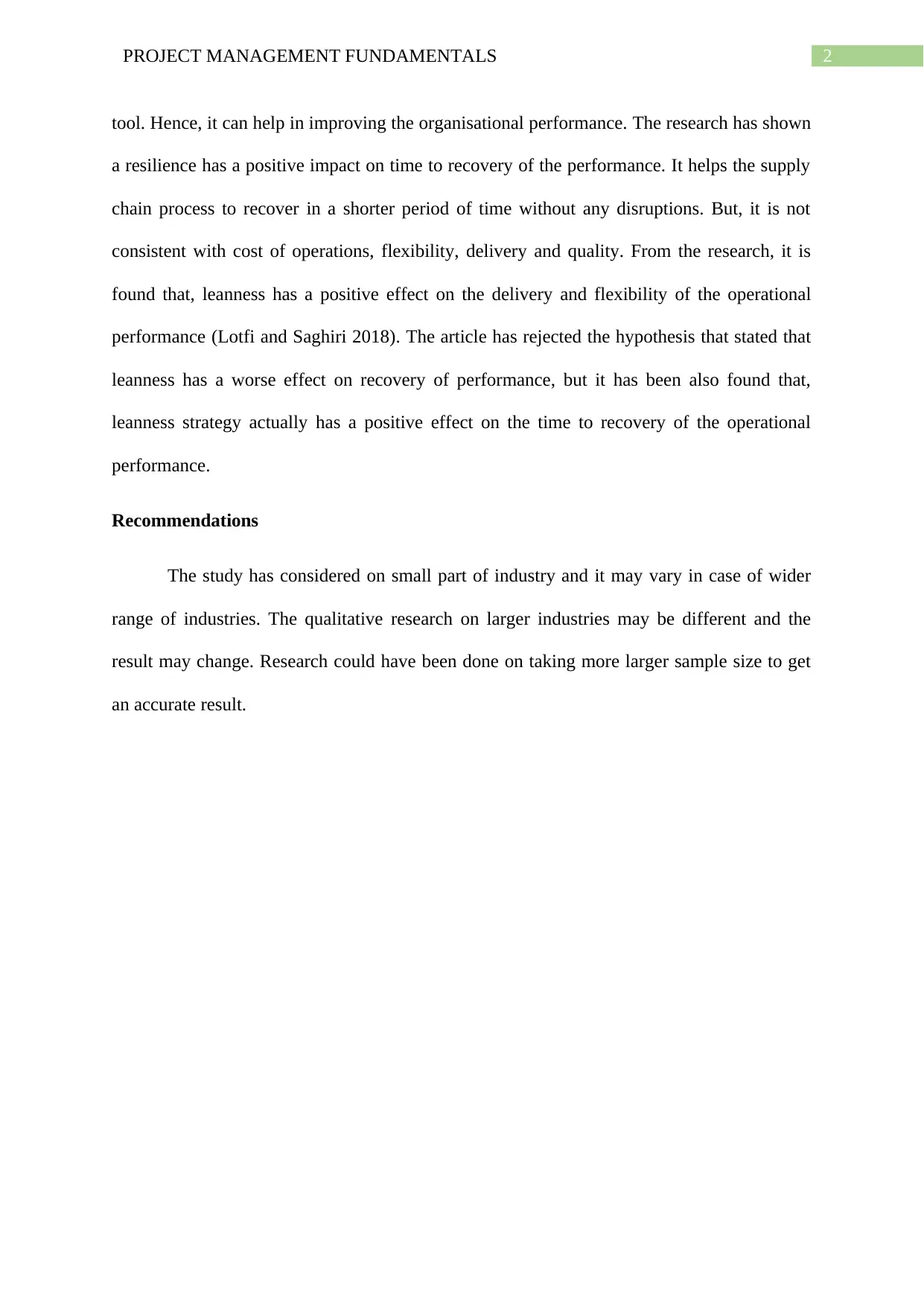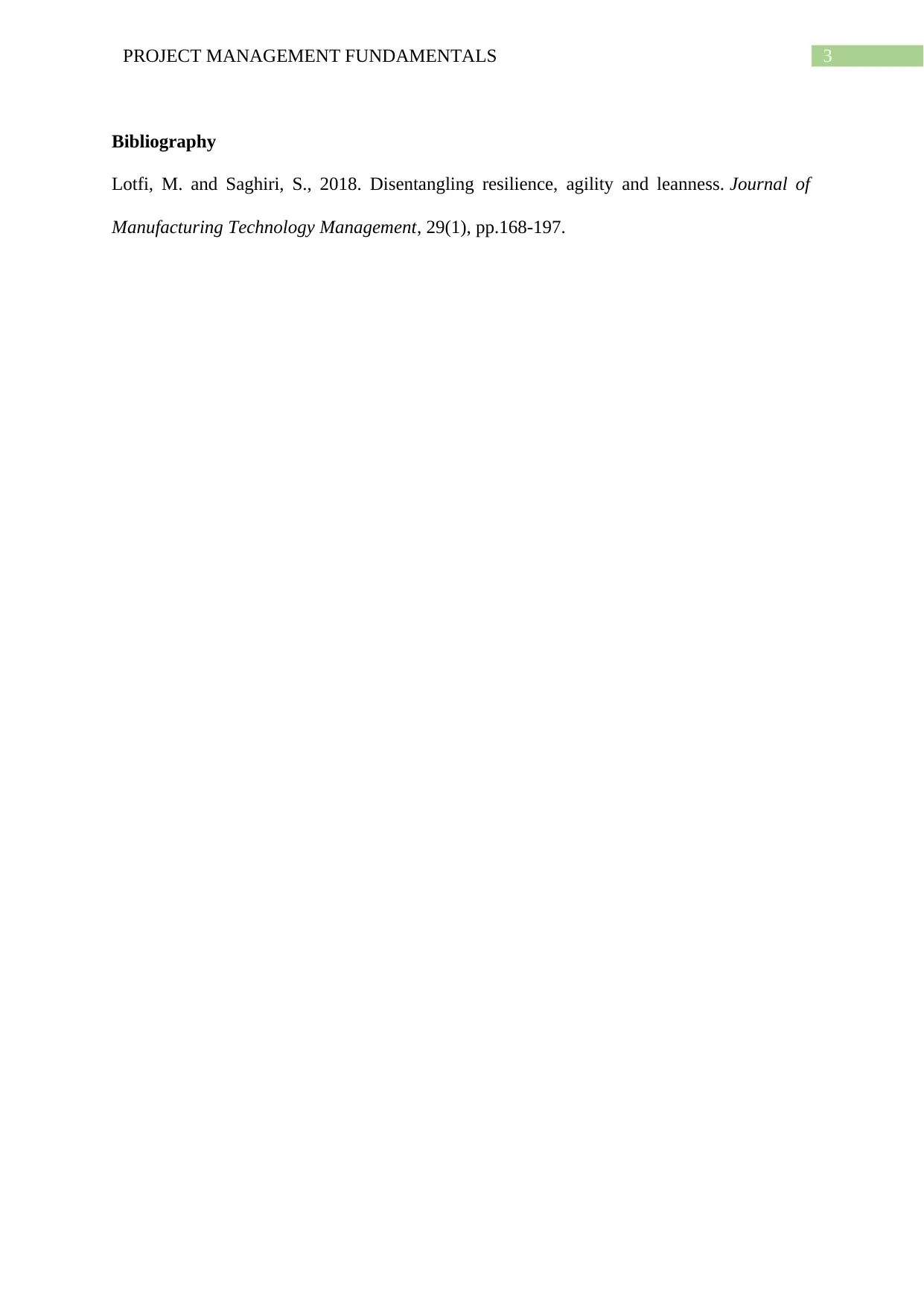Project Management Fundamentals Report: Resilience, Agility, and Lean
VerifiedAdded on 2022/08/20
|4
|608
|11
Report
AI Summary
This report summarizes a research article that investigates the effects of resilience, leanness, and agility on operational performance, primarily within the automotive industry. The study employs a structural model and SEM to analyze survey data from 151 automotive suppliers. The research explores the relationships between these strategies, testing hypotheses about their impact on cost, flexibility, time to recovery, quality, and delivery. The findings suggest that resilience positively affects time to recovery, while leanness positively impacts delivery and flexibility. The study also highlights the independence of agility and resilience. Recommendations include expanding the research to a broader range of industries and larger sample sizes for more accurate results. The report emphasizes the importance of resilience as a managerial tool for improving organizational performance and supply chain processes.
1 out of 4










![[object Object]](/_next/static/media/star-bottom.7253800d.svg)